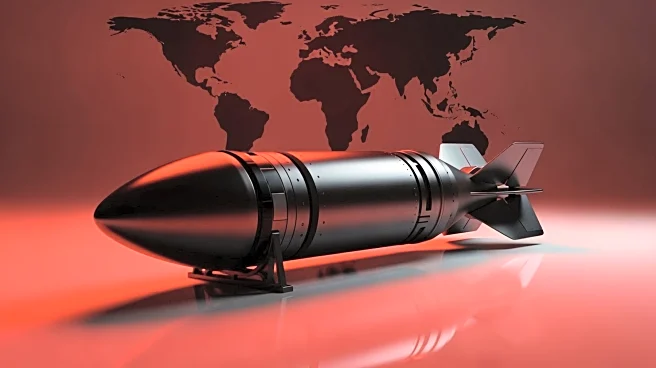What's Happening?
President Trump has announced that the United States will resume nuclear weapons testing, marking the end of a 30-year hiatus. This decision comes amid heightened global tensions, particularly with Russia's recent tests of nuclear-capable missiles and
sea drones. The announcement was made just before Trump's meeting with Chinese President Xi Jinping in South Korea, where the two leaders agreed to de-escalate their trade standoff. Trump emphasized that the nuclear testing decision was not aimed at China but at other unnamed countries conducting similar tests. The meeting also resulted in China agreeing to suspend its limits on rare earth metal exports and to take stronger action against fentanyl precursor chemicals.
Why It's Important?
The resumption of nuclear testing by the United States could signal a shift in global nuclear policy, potentially leading to increased proliferation among major powers. This move may impact international relations, especially with countries like Russia and China, who are also expanding their nuclear capabilities. The decision could affect global security dynamics and influence ongoing discussions about denuclearization. Additionally, the trade agreements reached between Trump and Xi could stabilize the global economy, benefiting industries reliant on rare earth metals and agricultural exports.
What's Next?
The announcement may prompt reactions from international stakeholders, including calls for diplomatic discussions to prevent further nuclear escalation. The U.S. may engage in talks with Russia and China regarding denuclearization efforts. The trade agreements could lead to further negotiations on economic cooperation and security measures in the Indo-Pacific region. The impact on U.S.-China relations will be closely monitored, especially concerning Taiwan and other geopolitical issues.
Beyond the Headlines
The decision to resume nuclear testing raises ethical and environmental concerns, as it may lead to increased radioactive contamination and health risks. The move could also influence public opinion on nuclear policy and defense strategies. Long-term implications may include shifts in global power dynamics and the potential for new arms control agreements.















